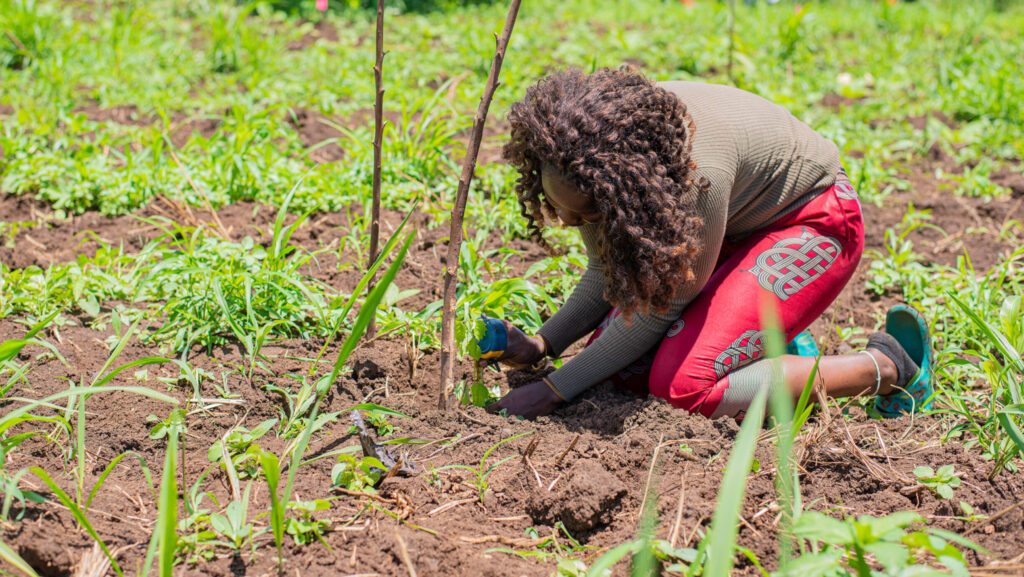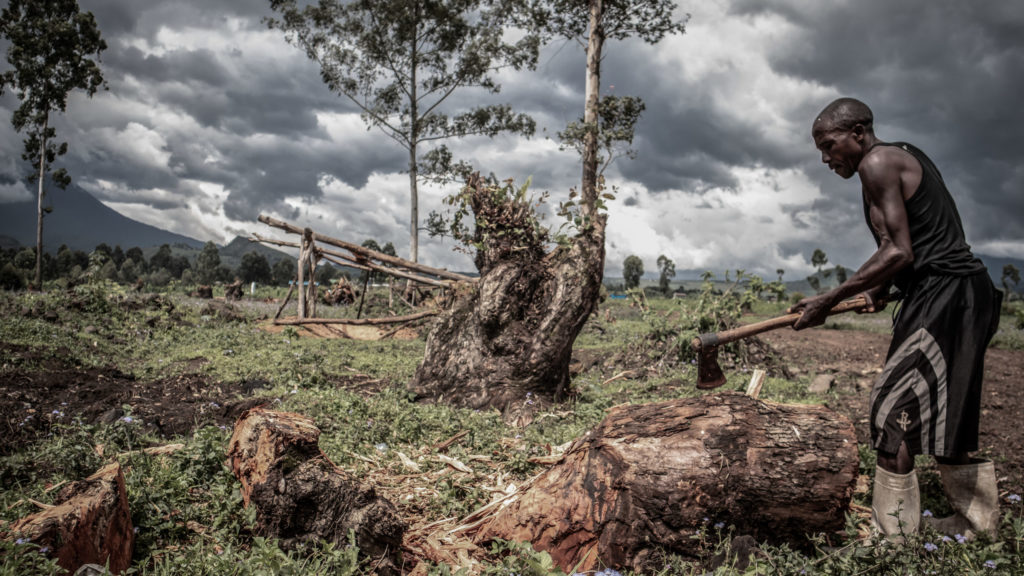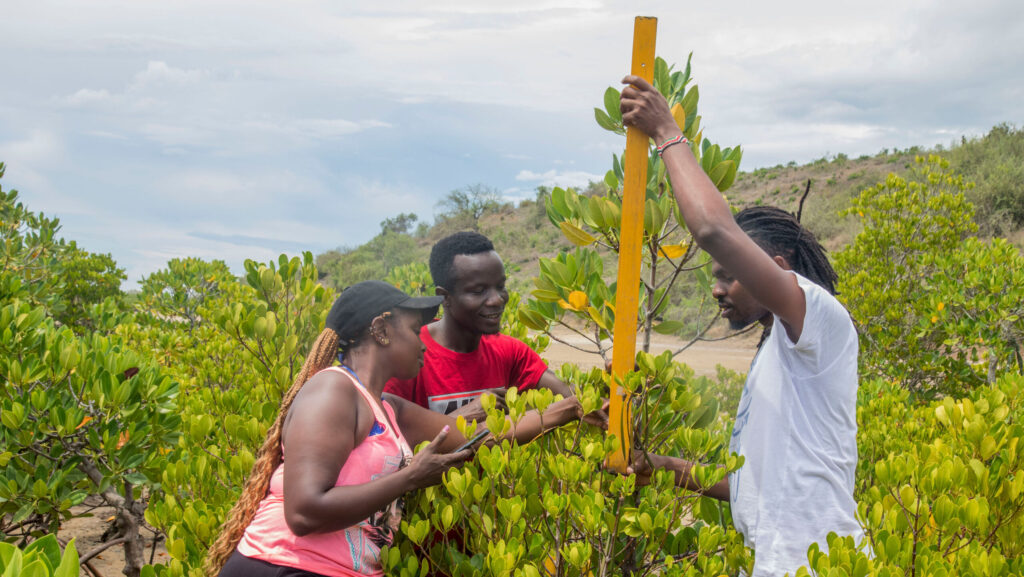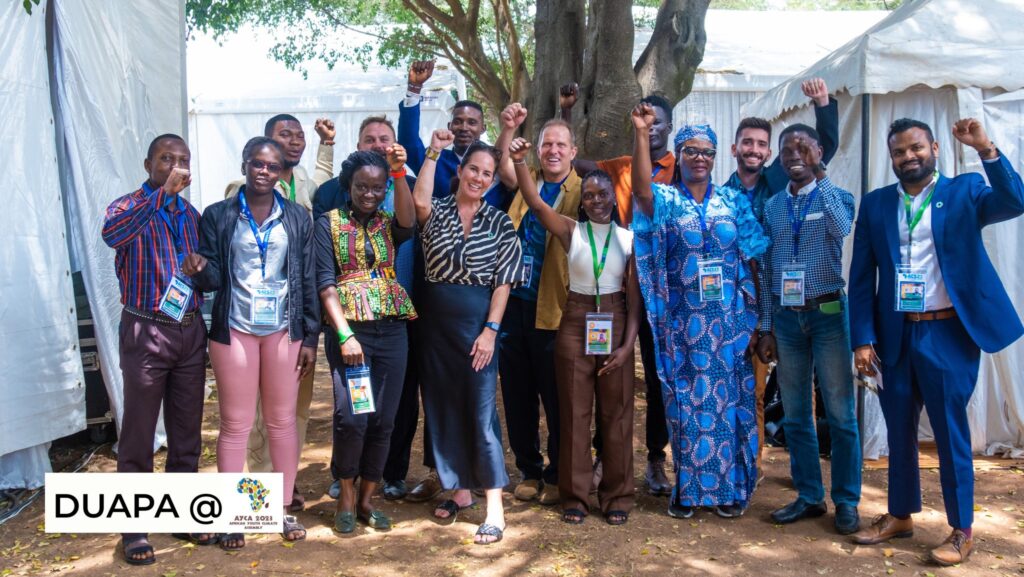Youth-led Reforestation and Clean Cooking: Protecting Nature and Empowering Communities
This week, as leaders and land restoration stakeholders gather in Zambia for the world’s largest land restoration programming conference, it is important to recognize the role that clean cooking plays in safeguarding critical forest ecosystems.

The impacts of climate change and deforestation on biodiversity are particularly acute in Africa, where 990 million people rely on solid fuels, like wood and charcoal, to cook their daily meals. Reliance on polluting solid fuels not only damages critical ecosystems but increases social vulnerability and exacerbates inequalities, with women and children bearing the disproportionate health and livelihood costs of lack of access to clean cooking.
Globally, approximately 35% of wood fuel harvested is unsustainable, exacerbating forest degradation, climate change, and poverty. Expanding access to clean cooking can enhance ecosystem restoration, sustainable agroforestry, conservation, and community development. Efficient cookstoves can significantly reduce fuel consumption, carbon emissions, and pressure on forests. Despite some progress, traditional cookstove distribution programs struggle to keep pace with population growth and often fail to incorporate local realities and preferences, limiting their effectiveness.

As Africa’s population rapidly increases, the rising demand for fuelwood underscores the urgency to mitigate forest degradation. Clean cooking is a cost-effective yet undervalued tool in protecting nature and livelihoods. Providing communities with access to clean cooking is essential to safeguarding forest ecosystems and promoting sustainable agroforestry, wildlife conservation, and sustainable livelihoods.
Increasingly, nature-focused initiatives are recognizing this imperative and seeking to address the twin challenges of conservation and access to clean energy. The DUAPA program, supported by Nature4Climate, is a youth-led restoration initiative operating across five African countries: Ghana, Liberia, Kenya, Uganda, and Nigeria. DUAPA, which means “Good Tree,” is implementing reforestation projects to restore critical ecosystems and monitor plant growth. However, these restoration initiatives can only be successful if they also address the root causes of land degradation, including the unsustainable harvesting of fuelwood for cooking. DUAPA recognizes that expanding access to clean cooking solutions for households and schools dependent on wood is essential for protecting ecosystems, supporting the “permanence” of nature-based carbon removals through reforestation and land restoration, and building community resilience.

The Clean Cooking Alliance (CCA) is partnering with DUAPA to help integrate clean cooking into the program’s approach and identify opportunities to accelerate context-specific clean cooking transitions that safeguard and enhance restoration efforts in DUAPA’s five countries of operation.
“Clean cooking is important for forest restoration projects because a large percentage of African countries still depend on fuelwood for cooking,” said Folake Salawu, of DUAPA’s Nigeria Conservation Foundation.
During the Africa Climate Summit, held in Kenya in 2023, CCA and DUAPA hosted a workshop to discuss the escalating pressure on landscapes and biodiversity due to the demand for fuelwood. Watch the workshop video here.
[ Learn about CCA’s clean cooking activities at the 2023 Africa Climate Summit. ]
Following from the workshop, CCA supported DUAPA in developing and delivering clean cooking needs assessment surveys to better understand the current cooking practices, impacts, and aspirations of different communities. The DUAPA teams conducted over 500 surveys across the five countries, revealing significant demand for, and interest in, clean cooking solutions. The survey is a pivotal tool to understand the dimensions of a community’s cooking practices, revealing their environmental, socio-economic, and health implications. However, the survey is just a first step toward implementing clean cooking interventions within the broader restoration program and monitoring the impacts on the landscape itself and the communities who depend on and protect it.

Conservation and restoration actors, like DUAPA, have a significant role to play in advancing these types of holistic approaches However, they require support to assess the impacts of lack of access to clean cooking on nature loss, connect with providers for suitable solutions, and align funding streams effectively.
DUAPA and CCA are seeking mission-aligned partners to enable the implementation of clean cooking transitions in DUAPA’s landscapes, including through fiscal sponsorship and in-kind support via input on program development and technical guidance. For more information or to express interest, please contact partnerships@cleancooking.org.
For more information
Bosco Juma, the team lead from Big Ship at DUAPA, will be hosting a side event “Clean Cooking and Reforestation: The Perfect Synergy” during the Accelerating Nature-based Solutions Conference in Zambia on March 12th from 11:00am to 12:00pm.
Read more about the link between nature and clean cooking here in CCA’s report: Accelerating Clean Cooking as a Nature-based Climate Solution.
Read more about CCA’s African Conservation & Clean Cooking Collective.
